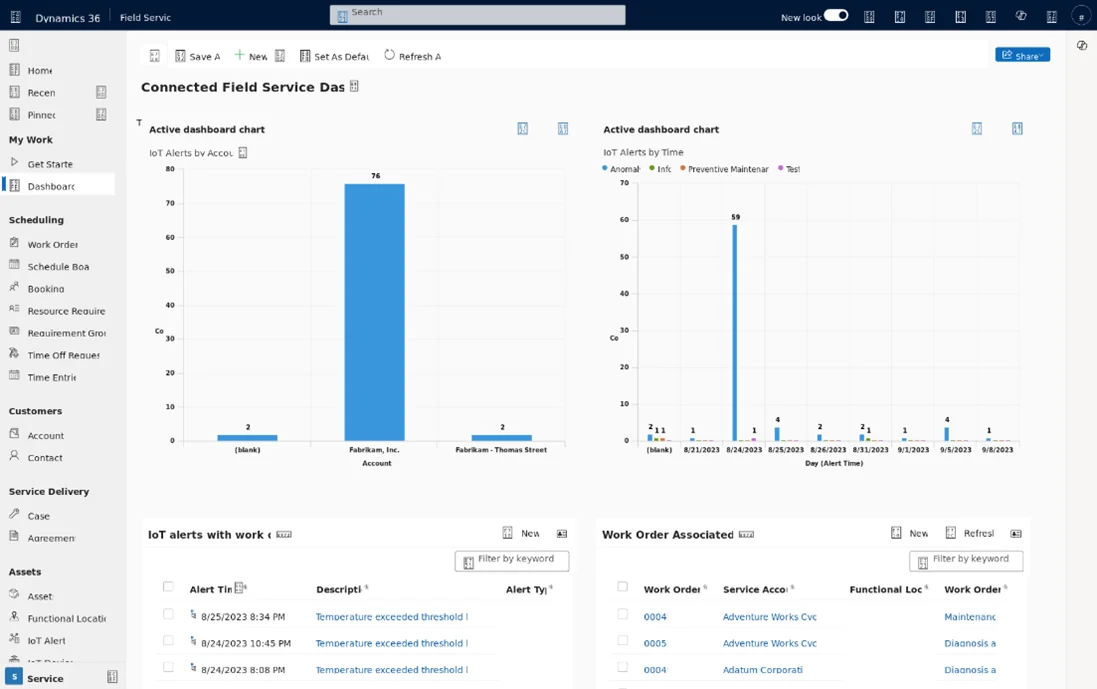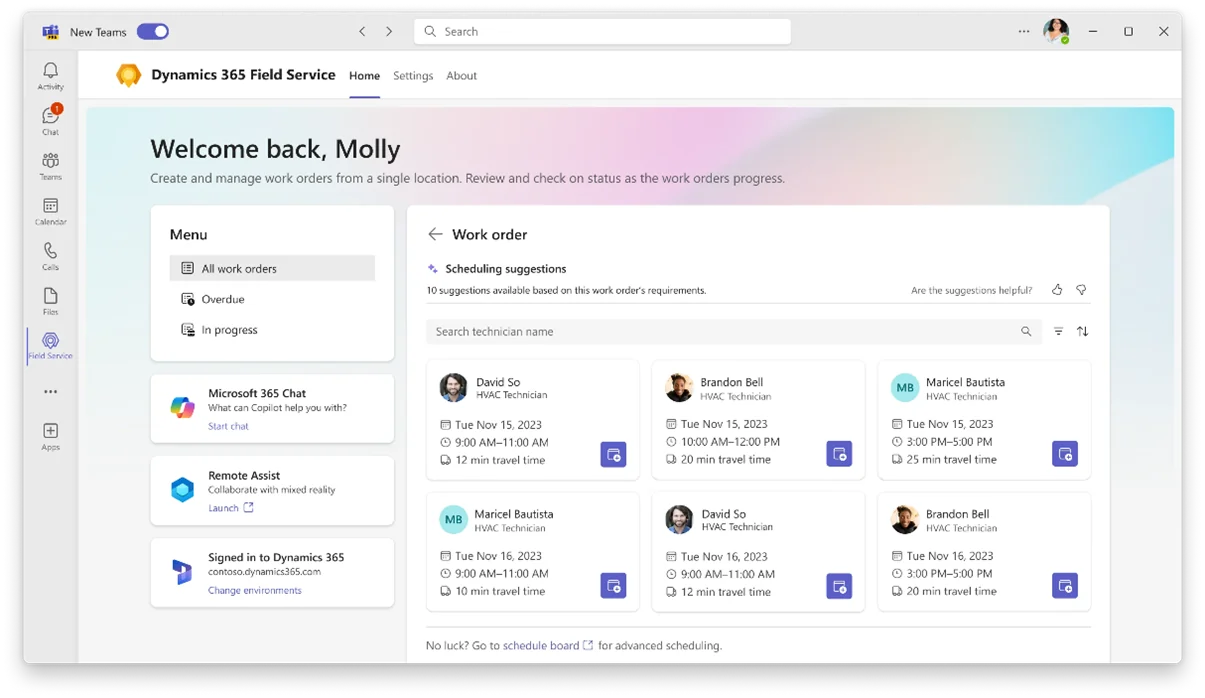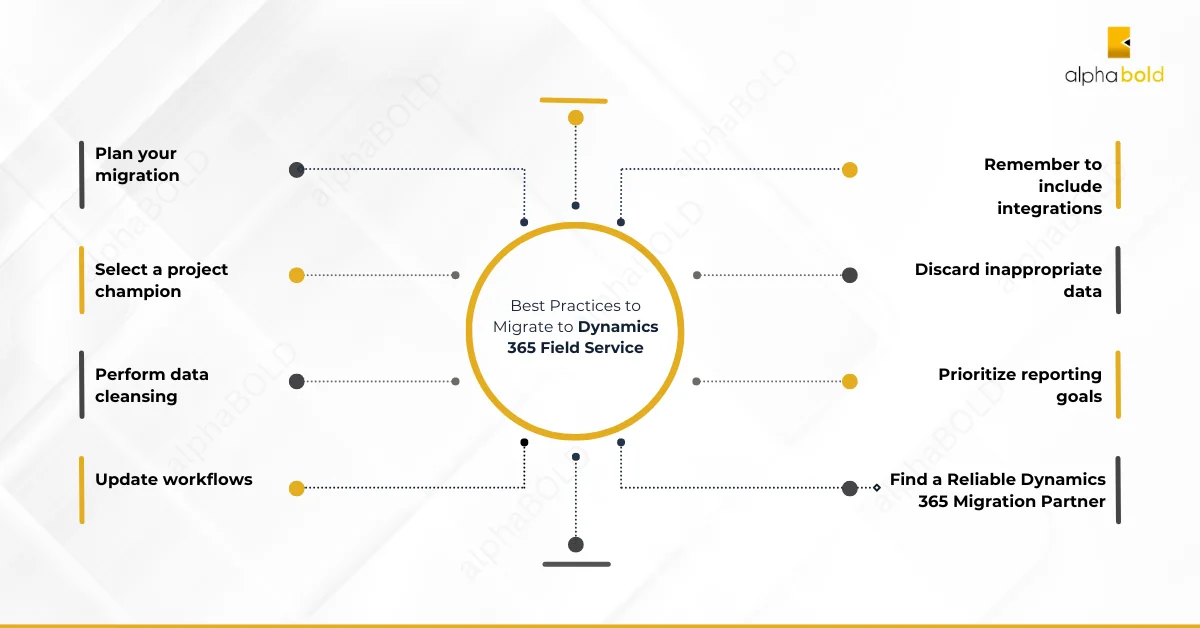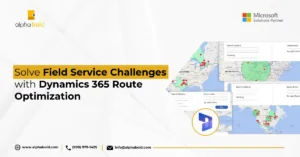Introduction
In this blog, we’ll discuss why transitioning from legacy systems to Dynamics 365 Field Service is a good option for leaders looking to upgrade their field service operations.
Selecting Microsoft Dynamics 365 Field Service for your field service operations is a good business move. The 2023 Work Trend Index Annual Report from Microsoft has shown that a significant portion of frontline workers are preoccupied with tedious, boring chores, which makes it difficult for them to concentrate on work that has a tangible effect. Plus, 66% are stressed that they don’t have enough time to get everything done.
So, what is the explanation behind retaining that outdated software? It’s evident that the organization’s more recent hardware and software systems don’t work well with the outdated software. Not only is it difficult, if not impossible, to update, but there are also a few people they can ask for help when they need it.
In actuality, legacy software persists because the company finds value in it. Our users have engaged with it for an extended period, and it has proven to be a valuable asset for the organization. Eventually, the company will see its old software from a different perspective. There is a growing understanding that:
- It consumes excessive amounts of resources and time
- It encourages obsolete practices and slightly impedes the company’s growth
- It is detached like an island in the center of the organization’s current software
Transitioning from Legacy Systems to Dynamics 365 Field Service: How Can it Resolve Your Issues?
Many teams have complained about challenges in obtaining the necessary outcomes from legacy software tools. We often see feedback demonstrating that, despite the strong capabilities of platforms like Salesforce and Oracle in field service, there are major issues regarding their accessibility, support, and customization options.
The evolution of field service management has been highly impressive. If you’ve been leading or supervising such a team for some time now, you’ve likely witnessed the shift from basic manual methods to the advanced, technology-driven systems we rely on today.
Benefits of Transitioning from Legacy Systems to Dynamics 365 Field Service Software:
Undertaking a major project such as a Dynamics 365 data migration can result in unavoidable complications and stress. However, in the long run, you will see several key benefits, including:
Easy Scalability and Customization:

The platform utilizes well-established web standards such as HTML, .Net, and Java, which are tools that most developers are accustomed to. This means that staff on your team or from the Microsoft Dynamics 365 partner you collaborate with can effortlessly boost the system’s features to suit your team’s operations.
Exceptional User Experience:
Read how D365 Field Service empowers C-level executives: Benefits of Adopting Dynamics 365 Field Service for Your Business.
Enjoy the latest Mobile Capabilities:
The Dynamics 365 Mobile app works effortlessly with the Dynamics 365 field service module. It equips field service teams with the resources necessary to provide outstanding service . With this tablet and smartphone solution, technicians can stay connected with critical data, update records, and interact with the main office while out and about.
Microsoft Dynamics CRM Field Service includes a flexible mobile framework that allows you to use mobile devices to enhance your company processes. This framework has several features that improve field-based operations and remote management.
Do You Feel Restricted By Your Field Service Software?
It's high time to ditch that outdated software. If you want your team to be productive and grow, D365 Field Service has everything you need: automation, AI technologies, and real-time analytics. To see how transitioning from legacy systems to the Dynamics 365 Field Service platform can improve your business, submit a demo request today.
Request a DemoImprove Field Service Efficiency with AI and Copilot:
Microsoft Copilot and Dynamics 365 are improving support for Field Service through the integration of Outlook and Microsoft Teams. Frontline workers can now swiftly access information through natural language searches with Copilot in Teams. This tool also improves the working environment for field technicians, increasing their independence and confidence in handling routine tasks.

The Microsoft Copilot and Dynamics 365 Field Service Outlook add-in automate the process of creating work orders by automatically populating information from emails. Additionally, it optimizes technician scheduling through intelligent suggestions, such as:
- Duration of travel,
- Accessibility,
- and expertise
Connectivity to the Entire Microsoft Environment:
Best Practices to Migrate to Dynamics 365 Field Service: What to Avoid?

Transitioning from legacy systems to Dynamics 365 Field Service is important for companies looking to adopt modern, flexible solutions. As a leader, you understand that this goes beyond an ordinary technical upgrade. It’s an organizational effort that focuses on enhancing your field operations. So, what measures can you take to ensure a smooth transition?
If you want to make it through this transition undamaged and set your company up for success in the long run, follow the suggestions below.
1. Plan Your Migration:
The migration of this magnitude involves much more than simply flipping a switch. A clear, strategic plan is where it all begins. Ensure you have clear goals and deadlines before going into the technical details. What issues are you going to address? What are your goals for the long term? With a well-planned migration, you can modernize your technology to support your company goal. It ultimately lowers risks and ensures that everyone is on the same page.
Tip: Maintain open lines of communication between departments, particularly with your field service teams. Their input is critical for making the system more suitable for their daily requirements.
2. Select a Project Champion:
3. Perform Data cleansing:
4. Update Workflows:
5. Remember to Include Integrations:
Before you go into the migration, consider how your company’s other systems will interact with Dynamics 365 Field Service. To maximize field service operations, flawless connection is necessary, whether it’s your CRM, ERP, or custom platform. It makes sure that data moves freely across your company, which improves communication and allows for better decisions.
Quick tip for transitioning from legacy systems to Dynamics 365 Field Service: You can link products like Power BI for sophisticated reporting or Microsoft Teams for greater collaboration with Dynamics 365’s integration features.
6. Discard Inappropriate Data:
Transferring all of the data from your previous system is unnecessary. Keeping things “just in case” leads to unnecessary clutter despite the desire to do so. Take this chance to get rid of material that doesn’t fit the bill, such as irrelevant information, outdated information, or doesn’t correspond with your long-term objectives. You may simplify the migration and make the new system easier to use for your team from the start by removing unnecessary features.
One of the most common blunders companies make is to put too much emphasis on the technical parts of migration and not enough on training their staff. If your workforce isn’t trained to use it, no amount of technology will help. Invest in training—not only to fulfill a requirement. Make sure that each team member’s training corresponds to their specific duties. As a result, your team will be prepared to dive headfirst into Dynamics 365 Field Service and make the most of its features.
7. Prioritize Reporting Goals:
If you go into D365 Field Service with well-defined reporting objectives, you will make the most of the powerful reporting features at your disposal. Always start by defining The KPIs that matter most to your operations-whether it’s technician efficiency, first-time fix rate, customer satisfaction, response times, or overall profitability. Tracking metrics like work order completion times, SLA adherence, and equipment uptime can give you a comprehensive view of your field service performance. When you get into system configuration, knowing what you want to monitor can help you get valuable, actionable insights right from the start.
Insight: Businesses that make decisions based on data have a 6% higher profit margin and a 5% higher productivity than competitors. The correct reporting objectives can have a direct impact on the success of a company.
8. Find a Reliable Dynamics 365 Migration Partner:
The selection of a trustworthy migration partner is an important phase. Although D365 Field Service is an effective tool, it is essential to have a knowledgeable partner who can assist you in navigating the platform and avoiding common mistakes. If you want your transitioning from legacy systems to Dynamics 365 Field Service to go off without a hitch, you should work with a partner that has expertise with such projects.
Find a partner with a track record of success, extensive industry knowledge, and a willingness to work collaboratively. This cooperation is significant for the Dynamics 365 Field Service investment to pay off, and more.
Conclusion
As an experienced Dynamics 365 partner, we can confidently say that no software rollout is without its challenges, no matter how carefully planned. After re-implementing several DIY migrations of transitioning from legacy systems to Dynamics 365 Field Service, we’ve learned that an expert migration partner is essential for a smooth transition.
AlphaBOLD specializes in delivering field service solutions that not only streamline operations but also differentiate your business, add value, and drive growth to your bottom line.
Witness the Next Generation of Field Service Software
A solution that can grow with your company is what your field service staff deserves. Learn how to initiate the process of transitioning from legacy systems to Dynamics 365 Field Service. Schedule a one-on-one demo now to see how our Dynamics 365 CRM experts can streamline your scheduling, reporting, and customer satisfaction processes.
Request a DemoExplore Recent Blog Posts








